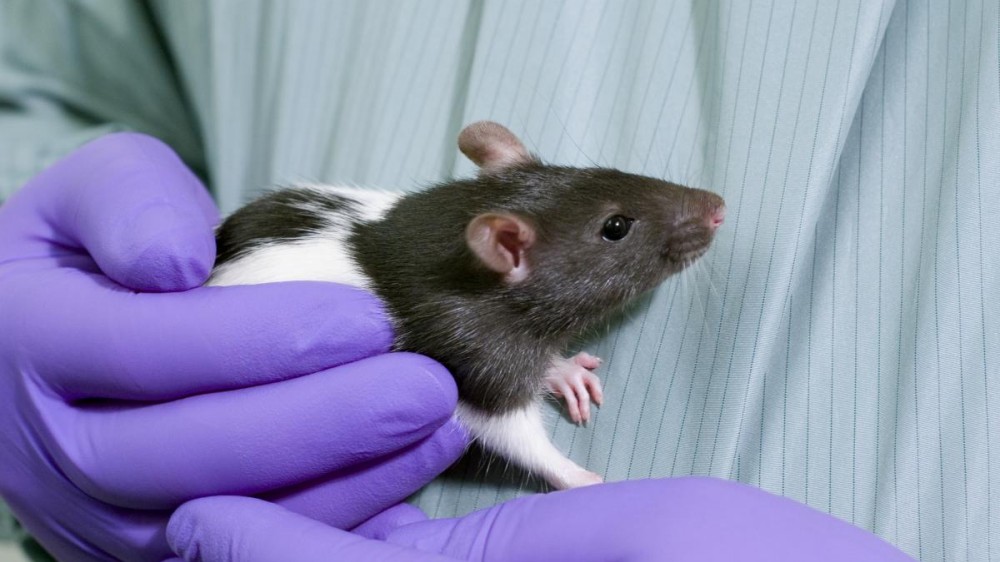Embedding the 3Rs in charity-funded research

Dr Martin Turner, Senior Policy Advisor at the Association of Medical Research Charities (AMRC), explains how the AMRC are working together with the NC3Rs to make the 3Rs a priority in charity-funded research.
The use of animals is a small but vital part of the medical research funded by charities to better understand disease and develop new treatments for patients. Our member charities work hard to fund the best science possible; that includes the best animal research that not only adheres to high animal welfare standards but is also well-designed and using the most up-to-date techniques. That’s why AMRC is now working with the NC3Rs. We are providing a range of resources to help charities large and small ensure these important standards are met in a way that works for the size and strategic focus of each individual charity.
The majority of the public support the use of animals where there is no alternative and suffering is minimised. AMRC member charities only fund research that follows this ethos: using animals only when there is no non-animal alternative and taking steps to minimise suffering. These are legal requirements, but charities can and are looking for ways they can go further.
Supporting the 3Rs through peer review
All members of AMRC use expert peer review when choosing what research to fund. Considering the replacement, refinement and reduction of animal use (the 3Rs) is a requirement of AMRC’s Principles of Peer Review, which all members must follow. With the help of the NC3Rs we have developed guidelines and support materials to help members meet this requirement. These include suggested wording for questions in grant application forms so that reviewers have the right information to assess the 3Rs and the AMRC-endorsed guidance document Responsibility in the use of animals in bioscience research. And so far we have also run two workshops with the NC3Rs on embedding the 3Rs in peer review, the most recent of which held in May, where we explored in more detail and discussed with experts how charities can go above and beyond the standards set out in law.
AMRC’s partnership with the NC3Rs means that all members can seek advice from the NC3Rs if they have concerns about a research proposal which their peer review panel cannot address. It is also a mandatory requirement in our Principles of Peer Review that proposals involving cats, dogs, horses or non-human primates are referred to the NC3Rs for expert review. Such a service is invaluable, as illustrated by the many examples of reductions in animal use and improvements in welfare achieved on funded Wellcome Trust, MRC and BBSRC grants following NC3Rs review.
The MRC has also recently updated its guidance to applicants for research involving all types of animals. At the workshop in May, Professor David Leon from the London School of Hygiene and Tropical Medicine, who helped produce the new guidance, explained this was to increase the reproducibility of MRC-funded research. A working group of the MRC found that sample sizes, statistical analyses and measures to minimise experimental bias are sometimes inadequately described in research proposals. Put simply, you wouldn’t fund a human clinical trial with poor design, so why an animal one? Their new guidance will help applicants and reviewers ensure animal numbers are justified and studies are well-designed for maximum scientific benefit.
UK legislation protecting animals in science is considered much better than in most other countries, where standards of animal welfare can be very much lower. This means that peer review and following the 3Rs is even more important to ensure appropriate standards when charities are funding overseas. Again NC3Rs can provide advice and we have also developed guidance for peer reviewers to help them ask the right questions when reviewing research for overseas.
Being aware of alternative approaches
There are many innovative new techniques and experimental models being developed that replace, refine and reduce animal use. At the workshop we heard Professor Robin Williams, Royal Holloway, University of London, speak about his research using the amoeba to unpick the molecular causes of epilepsy; work which also replaces and reduces the use of rodents in epilepsy research, and refines experiments on long-term seizure control. There are other examples like this relevant to the many health conditions represented in our membership. We are going to work with the NC3Rs to bring the latest 3Rs research news to our members so that they can ensure they are funding research that uses the most up-to-date and scientifically valid approaches.
The May workshop was a fascinating day but one thing, from Robin Williams’ talk, stands out for me: he applied the 3Rs to his research and it led to a discovery that would probably not have been found with the animals his colleagues in other labs were using. His new way of thinking led to innovation that has benefitted patients. And isn’t that what we all want?
